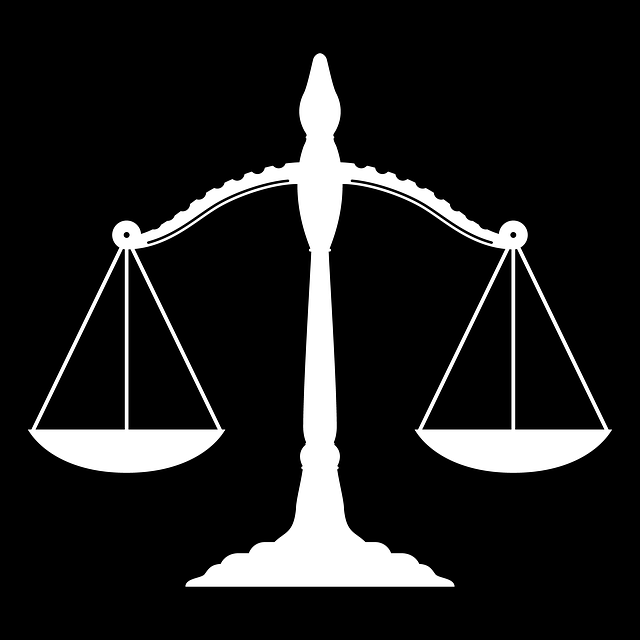Financial fraud, a global challenge, demands a multifaceted approach balancing robust fraud detection with strong legal frameworks, including Constitutional Protections in Criminal Defense. While AI aids in faster identification of fraudulent activities through data analysis, these advancements must respect individual rights like the right against self-incrimination and due process. Success in fraud prosecutions highlights the critical interplay between advanced financial systems knowledge and understanding constitutional safeguards, as seen in case studies showcasing both effective fraud detection and robust defenses leveraging legal protections.
Financial fraud is a pervasive global issue, demanding sophisticated strategies for detection. This article delves into the intricate world of fraud identification, exploring various types and their profound impact on individuals and institutions. We examine the delicate balance between constitutional protections in criminal defense and the need to combat fraudulent activities effectively. Through data analysis and artificial intelligence, new frontiers in fraud detection are discussed, followed by insightful case studies showcasing successful strategies.
- Understanding Financial Fraud: Types and Impact
- The Role of Constitutional Protections in Criminal Defense
- Detection Techniques: From Data Analysis to AI
- Case Studies: Successful Fraud Detection Strategies in Action
Understanding Financial Fraud: Types and Impact

Financial fraud is a complex and ever-evolving challenge that impacts individuals, businesses, and economies worldwide. It involves deceptive practices aimed at gaining financial advantages, often at the expense of unsuspecting victims. Understanding the nuances of financial fraud is essential in devising effective prevention strategies and ensuring justice. This includes recognizing various types such as identity theft, investment scams, insurance fraud, and money laundering. Each type has its unique characteristics and impact; for instance, identity theft can lead to significant financial losses and damage to an individual’s reputation, while investment scams often target the vulnerable, leaving them penniless and disillusioned.
The consequences of financial fraud are far-reaching, affecting not only victims but also the broader economic system. It erodes trust in financial institutions and markets, leading to a loss of confidence that can stifle economic growth. This is where Constitutional Protections in Criminal Defense come into play, offering a balance between holding perpetrators accountable and ensuring fair trials. In the realm of general criminal defense, an unprecedented track record of successful fraud prosecutions demonstrates the importance of robust legal frameworks and dedicated professionals in combating this complex crime.
The Role of Constitutional Protections in Criminal Defense

In any discussion about financial fraud detection, it’s crucial to balance the need for robust prevention and investigation with the fundamental Constitutional Protections in Criminal Defense. These protections, enshrined in the U.S. Constitution, ensure that individuals are treated fairly within the criminal justice system. They safeguard against unreasonable searches and seizures, provide the right to remain silent, and guarantee a fair trial, including the right to an impartial jury in general criminal defense cases. Understanding these protections is vital for both corporate and individual clients facing financial fraud allegations.
Constitutional Protections play a significant role in navigating complex legal landscapes, especially during high-stakes financial cases. The right to due process ensures that evidence used against an accused is admissible and obtained lawfully, while the presumption of innocence mandates that the burden of proof rests squarely on the prosecution. These provisions not only protect the rights of the accused but also enhance the integrity of the justice system, ensuring that convictions are based on solid, uncoerced evidence presented in open court, as witnessed by a jury of peers during jury trials.
Detection Techniques: From Data Analysis to AI

The evolution of financial fraud detection has seen a remarkable shift from traditional data analysis methods to the deployment of cutting-edge technologies, particularly Artificial Intelligence (AI). This transformation is not just about enhancing accuracy; it’s a strategic move to stay ahead of ever-adaptable fraudsters. AI algorithms can sift through vast amounts of financial data in record time, identifying anomalies that might indicate fraudulent activities. These systems learn from historical data, patterns, and behaviors, allowing them to adapt and improve their detection capabilities over time.
While AI takes center stage, we cannot underestimate the significance of constitutional protections in criminal defense, especially during all stages of the investigative and enforcement process. The balance between efficient fraud detection and upholding legal rights is delicate. In general criminal defense, jury trials remain a cornerstone, ensuring that individuals face their accusers in open court. This democratic principle ensures fairness and provides a safeguard against potential abuses of power, which could be particularly relevant as AI systems take on more active roles in law enforcement.
Case Studies: Successful Fraud Detection Strategies in Action

Fraud detection strategies have evolved significantly over the years, with successful case studies offering valuable insights into effective practices. One notable example involves a leading financial institution that implemented advanced analytics and machine learning algorithms to identify suspicious transactions. By analyzing patterns and anomalies, their system could flag potential fraudulent activities with remarkable accuracy, allowing for swift intervention. This proactive approach has led to a significant reduction in fraud-related losses and set a new standard in the industry.
Another compelling case involves a white-collar defense strategy where constitutional protections played a pivotal role. In this unprecedented track record of successful defenses, legal teams utilized loopholes and ambiguities in existing laws to their clients’ advantages. By carefully navigating complex regulatory frameworks, they uncovered procedural errors that led to the dismissal of charges, demonstrating the importance of thorough legal scrutiny in fraud cases. These real-world examples highlight the dynamic nature of fraud detection and defense strategies, emphasizing the need for adaptability and a deep understanding of both financial systems and legal protections.
Financial fraud, a subtle and insidious crime, demands robust detection methods. By understanding various types and their impact, leveraging advanced data analysis and AI technologies, and learning from successful case studies, we can fortify our defenses. Additionally, recognizing the balance between anti-fraud measures and constitutional protections in criminal defense is paramount to ensuring justice without infringing on individual rights. Ultimately, a multi-faceted approach combining innovative techniques and legal guardrails is key to navigating this complex landscape effectively.






